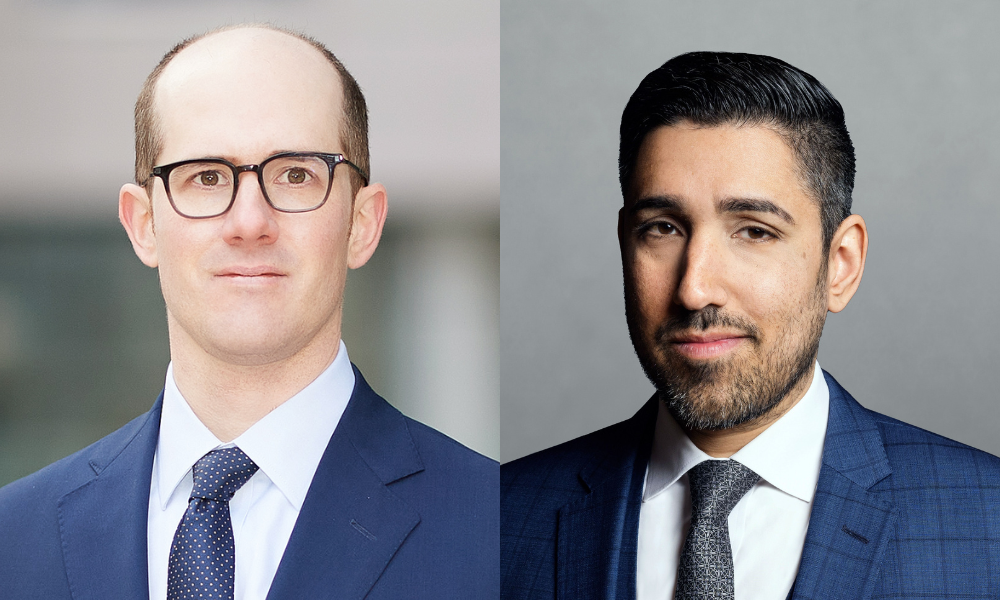
How the rule of law started and its fundamental principles

This article is part of a series addressing popular topics and questions clients and the public may have about the legal profession.
To criminal defence lawyer Ryan Handlarski, the rule of law is best epitomized by Nuremberg prosecutor Benjamin Ferencz’s slogan: “Law. Not war.”
“The rule of law means that everybody is subject to the same law,” says Handlarski. “Nobody is above it. And we are going to use law as a tool to mediate disputes and not have our disputes settled by violence.”
According to the United Nations, the rule of law “is a principle of governance in which all persons, institutions and entities, public and private, including the State itself, are accountable to laws that are publicly promulgated, equally enforced and independently adjudicated, and which are consistent with international human rights norms and standards.”
“It means that government, all citizens, all businesses, all organizations are under a single set of laws,” says Eric Morgan, a corporate commercial litigator and arbitrator at Kushneryk Morgan LLP. “And then the laws get applied equally by an independent judiciary with a fair hearing.”
While it is up to the government to create laws, the rule of law requires these processes do not occur in private, said the Provincial Court of British Columbia. Laws must be enacted openly and transparently.
The concept of the rule of law has been around since ancient Greece, and the philosophers Plato and Aristotle, said the court. The Magna Carta, agreed in 1215 in Runnymede, England, was also a significant milestone in its development. According to the British Library, the Magna Carta established for the first time the idea that everyone, including the King, was subject to the law.
The document’s legacy is evident in the United States Bill of Rights, the Universal Declaration of Human Rights, the European Convention on Human Rights and many other constitutional and political documents, said the British Library.
The BC Provincial Court names three prominent Canadian cases in which courts applied the concept of the rule of law. In the 1959 Supreme Court of Canada ruling Roncarelli v. Duplessis, Canada’s top court found the Premier of Quebec Maurice Duplessis had “acted arbitrarily and without good faith” when he suspended a man’s liquor license, not for any reason related to the law governing liquor licenses, but as punishment for his affiliation with the Jehovah’s Witnesses.
The SCC again applied the rule of law to prevent Quebec’s unilateral secession from Canada in 1998. In Reference re Secession of Quebec, the court said that secession would require the involvement and input of non-Quebecers because Canadians had “created close ties of interdependence (economic, social, political and cultural) based on shared values that include federalism, democracy, constitutionalism and the Rule of Law, and respect for minorities.”
Reference Re Secession of Quebec is one of the most famous Canadian court cases by the SCC throughout the years. Read more here.
Then in 2014, the Ontario Superior Court dealt with a terrorism case in which the accused submitted that the trial should proceed according to the Holy Qur’an rather than the Criminal Code. The court found that the rule of law was a fundamental constitutional principle, and a holy book could not override the system of positive laws which govern Canada.
Ferencz, who prosecuted Nazi war criminals after serving in combat in World War Two, felt the alternative to the rule of law was war.
As the rule of law dictates how power is exercised in a society, one alternative is “the arbitrary use of power,” says Morgan. In a dictatorship, for example, power is wielded based on the whims of one person. Another alternative, he says, is no rules: chaos.
Also counter to the rule of law would be its unequal application. For example, when the law is applied between citizens, but not between citizens and the state.
There is also a social aspect to the rule of law, says Morgan, involving shared beliefs, trust in institutions and obeying the law and the courts.
“It can be fragile. Once people stop believing in the rule of law, it can collapse.”